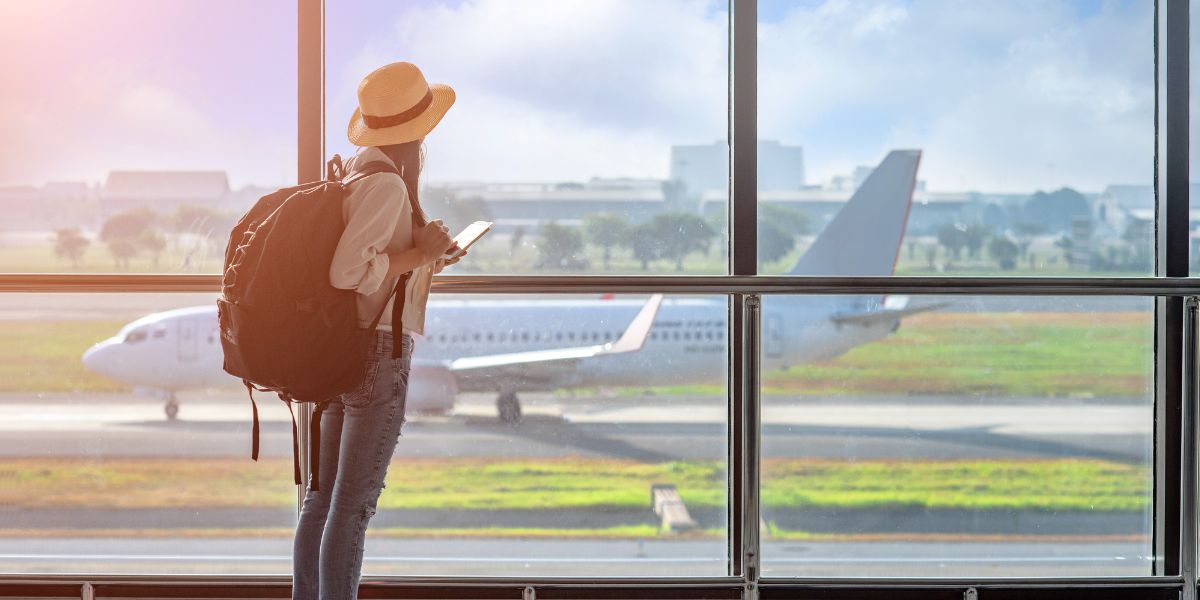Stone Mountain and Rock City are two of the more staggering natural attractions in Georgia, while Centennial Olympic Park is a 21-acre public park that is just as beautiful at day or night.
The Foreign and Commonwealth Office (FCO) advise against all travel to the breakaway regions of South Ossetia and Abkhazia, for the safety of visitors.
All but essential travel to the areas near the Administrative Boundary Lines with Abkhazia and South Ossetia is also unadvised.
Getting to Georgia
Tbilisi, the capital of Georgia, can be accessed in a number of different ways.
Flight times from London to Tbilisi can vary, with certain flights arriving in around seven hours, while others, depending on airlines and stops, can take 13 hours or on rare occasions well over.
Driving or train travel, meanwhile, can require between two and three days of travel.
Time zone
Georgia is three hours ahead of British Summer Time and four hours ahead of Greenwich Mean time, which which may not require major alterations to your diabetes management.
However, if you are unsure as to how best to stick to your medication schedule then it is best to discuss a plan with your diabetes specialist.
Climate
Georgia has a similar climate to the UK, except summers have a tendency to be warmer, with average temperatures of around 25°C.
Hot weather can lead to enhanced insulin absorption so insulin takers should be attentive in checking blood sugar levels, especially during periods of activity.
If you are susceptible to hypoglycemia, you should carry sugar on you at all times.
Currency
The currency in Georgia is the Georgian lari, with ATMs widely available for money exchange throughout the country.
Vaccinations
There are no mandatory vaccinations required to enter Georgia, but it is recommended for most travellers to receive vaccination for hepatitis A, which can be contracted through contaminated food and water.
Rabies can be found in dogs, bats and other mammals in Georgia. This is not a major risk for travellers, but vaccination is advised for people who will be working with or around animals, children, or those planning activities in remote regions that put them at risk of animal bites.
If you believe you may require these vaccines then you should consult your doctor at least eight weeks before travelling which should allow enough time for you to receive them.
Otherwise, the opportunity should be taken to ensure existing vaccinations such as your yearly flu jab and those against polio and tetanus are also up to date.
Insulin
You should note which syringes are available in Georgia, with U-100 syringes the most commonly used.
The vast majority of insulin in the UK is U-100 insulin. If you need to take a different strength of insulin, say in an emergency, it’s important that you use the correct device and syringes for that insulin.
For example, you would use a U-40 syringe for U-40 insulin. You will need to work with a doctor getting the right dose if you’re using a different form of insulin.
UK Global Health Insurance Card
Apply for a GHIC (UK Global Health Insurance Card) – you can apply online at https://overseas-healthcare.nhsbsa.nhs.uk/get-healthcare-cover-travelling-abroad/start and you can receive free cover in some European countries.
Getting medication when in Georgia
Georgia has a reciprocal healthcare agreement with the United Kingdom. Your passport will need to be shown as identification when purchasing medication, but it will be provided at a reduced cost or, in some cases, free.
Some medical treatment will be free, but prescription medicines will normally require payment. Blood are urine testing equipment is available from most pharmacies in Georgia.
The emergency services telephone number to be called in Georgia is 112
It is advisable to contact the manufacturing company of your medication prior to leaving the UK to find out what is available in Georgia if your medication gets lost, stolen or damaged. It is also worth checking to see what different names your medication may be listed as.
Diabetes associations
There is one diabetic association in Georgia that can be contacted for information prior to your stay. The address of this association is:
- Georgian Union of Diabetes and Endocrine Associations (a member of the International Diabetes Federation (IDF) since 1994), National Centre for Diabetes Research, 1 Chachava Street, 0159 Tbilisi, Georgia Tel: +995-32-517654 Email: [email protected]
It is important to note the diabetes associations in the country you are travelling to in case of an emergency.
Questions
- How is blood glucose measured in Georgia? Unfortunately, we do not have the information of whether blood glucose is measured in mg/dl or mmol/l in Georgia
- What language is spoken in Georgia? Georgian and Russian. It wise to learn some basic Georgian phrases to assist in your day-to-day activities
- Will I need an international driving license when driving in Georgia? Yes
- If I want to hire a vehicle during my visit, will I face any form of discrimination? No
- What sugar free drinks are available in Georgia? Diet Coke, Diet Fanta and mineral water, among others




